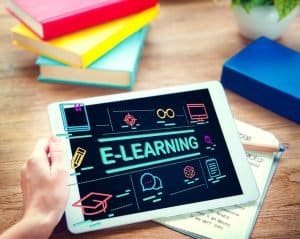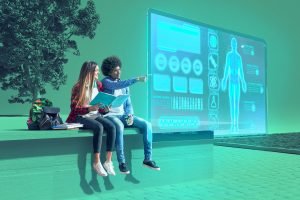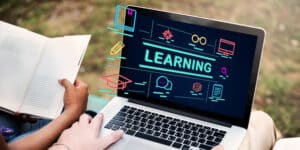Hey there, tech enthusiasts and education aficionados! Have you ever wondered what the future holds for educational technology? Well, buckle up because we’re about to take a ride into the world of tomorrow, where learning meets innovation in the most mind-blowing ways!
Imagine a classroom where textbooks are relics of the past, replaced by immersive virtual reality simulations that transport students to ancient civilizations or distant planets. It sounds like something out of a sci-fi movie. But guess what? It’s more plausible than you might think!
With advancements in augmented reality (AR) and virtual reality (VR) technology, the possibilities for interactive learning experiences are virtually endless. Students can dive deep into subjects like never before, exploring concepts in 3D environments that make textbooks seem downright boring.
But it’s not just about fancy gadgets and flashy graphics. The future of educational technology is also about personalized learning experiences tailored to each student’s unique needs and learning style. Artificial intelligence (AI) algorithms analyze data on how students learn best and adapt lessons in real time to maximize understanding and retention.
Think of it like having a personal tutor who knows exactly how to explain a tricky concept in a way that clicks with you—no more struggling to keep up with the rest of the class or feeling left behind because you learn differently. Educational technology of the future is all about leveling the playing field and ensuring that every student has the opportunity to succeed.
But wait, there’s more! The future of educational technology isn’t just confined to the classroom. With the rise of online learning platforms and remote education, students can access high-quality education anywhere in the world. Whether in a bustling metropolis or a remote village, as long as you have an internet connection, the world of knowledge is at your fingertips.
And let’s not forget about the role of technology in making education more accessible to people with disabilities. From screen readers for visually impaired students to speech recognition software for those with dyslexia, technology can break down barriers and open doors to education for all.
So, what does the future hold for educational technology? In short, there are endless possibilities. From immersive VR experiences to personalized AI tutors, how we learn is revolutionizing. And the best part? We’re just getting started. So strap in and get ready for the ride of a lifetime because the future of education is here, and it’s nothing short of extraordinary! And be sure to explore Magque, your go-to source for the latest and most intriguing updates in the realms of informative tips & reviews!
FAQs
Q1. What role will artificial intelligence (AI) play in the future of educational technology?
AI is set to revolutionize education by providing personalized learning experiences for students. AI algorithms can adapt lessons to individual learning styles through data analysis, making education more engaging and effective.
Q2. How will virtual reality (VR) and augmented reality (AR) impact the classroom of tomorrow?
VR and AR technology will transform traditional classrooms into immersive learning environments. Students can explore historical events, scientific phenomena, and complex concepts in 3D, enhancing comprehension and retention.
Q3. Will educational technology replace traditional teaching methods entirely?
While educational technology will undoubtedly play a significant role in future classrooms, it will unlikely replace traditional teaching methods entirely. Instead, it will complement them, providing educators with powerful tools to enhance learning outcomes.
Q4. What are the implications of online learning platforms for the future of education?
Online learning platforms will democratize education, making high-quality learning accessible to individuals worldwide. Students can access a wealth of educational resources and opportunities in urban centers or remote areas.
Q5. How will educational technology address the needs of diverse learners, including those with disabilities?
Educational technology has the potential to make learning more inclusive by providing tools and resources tailored to the needs of diverse learners. From assistive technologies for individuals with disabilities to adaptive learning platforms, technology can break down barriers and create equitable learning environments.
Read Also This:- The Role of Technology in Personalized Learning













